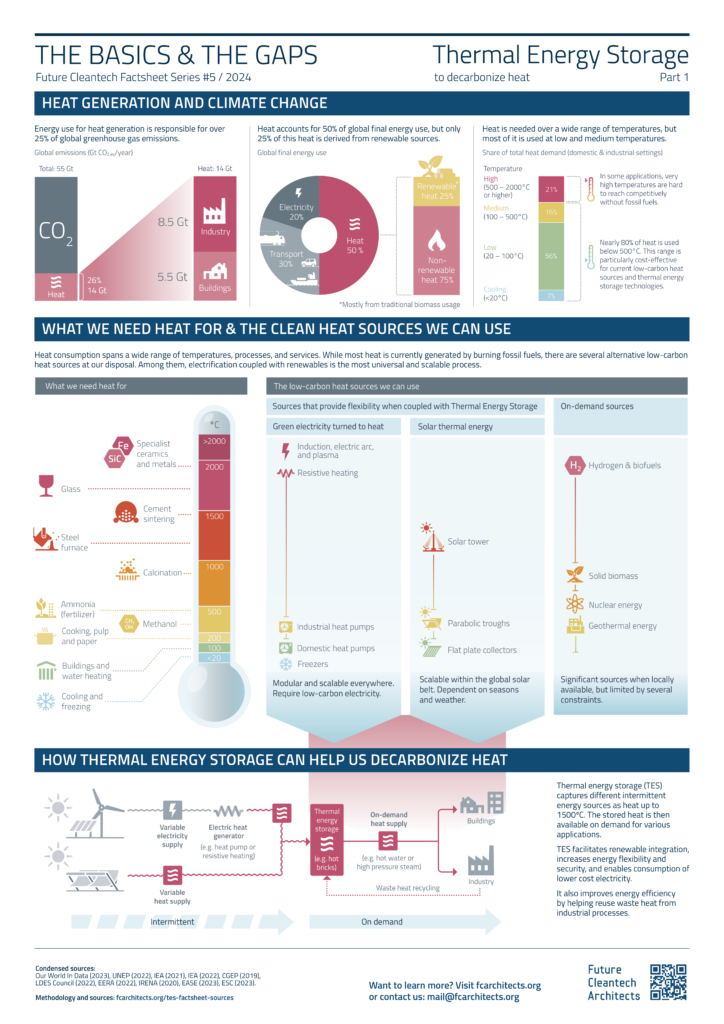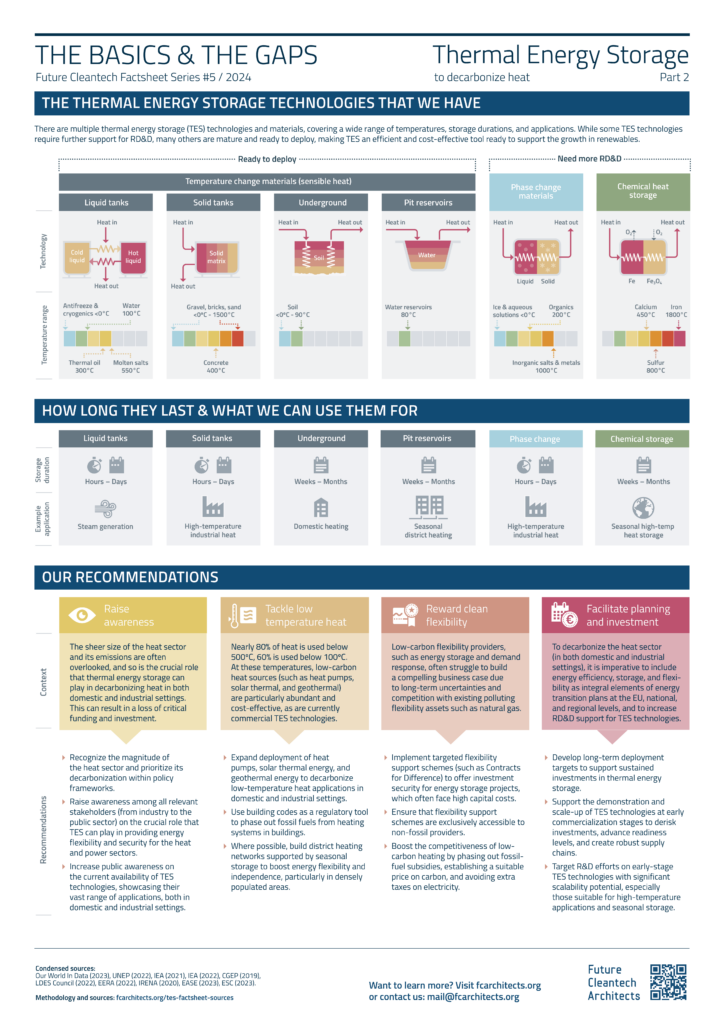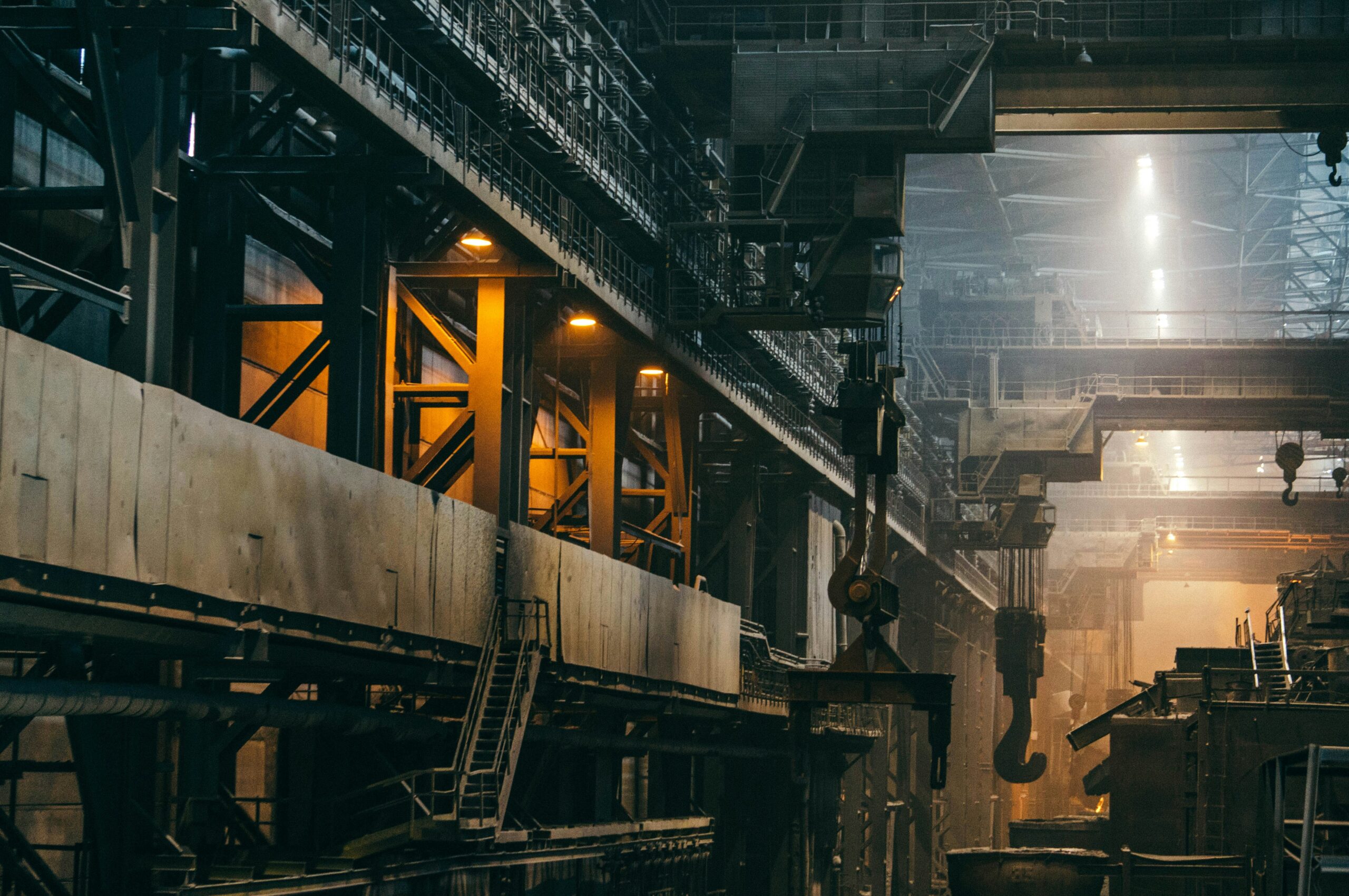Last week, the EU Commission’s High-Level Expert Group presented its recommendations for the future EU Horizon Europe program.
🌍 Key proposals presented a transformative agenda for post-2027 Horizon Europe to boost industrial competitiveness and address societal challenges, including disruptive innovation funding, an Industrial Competitiveness and Technology Council, and a stronger research ecosystem. These can be crucial for decarbonizing energy-intensive industries by driving investment in innovation, development, first of a kind projects, and scaling cleantech. A focus on industrial private and public R&D can accelerate the transition to sustainable, low-carbon solutions.
🔥Industries like steel and cement production rely on high temps (500°-2000°C). The good news? Electrification is feasible in the medium term! Coupled with thermal energy storage, electric heat can be both viable and cost-effective! For more on thermal energy storage, please see our factsheet!


🔧 Retrofitting existing industrial facilities with electric heating requires tailored solutions. That’s why R&D funding is crucial. We need support for engineering adaptations to integrate electric heat into both new and old industrial processes.
🚧The challenge? Electricity costs. In Europe, clean electricity is 2-3x more expensive than gas. Policymakers must reduce these costs by promoting thermal energy storage, expanding grids, and fast-tracking permits for transmission lines.
🌞 The EU also needs to explore alternative heat sources like solar thermal and geothermal. These technologies could be key in areas where grid access remains a bottleneck. Let’s diversify our clean heat solutions!
Learn more about decarbonizing high-temperature heat in industry in our latest technical report!

